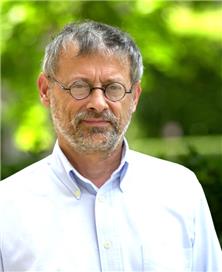History of the programme
The Erasmus Mundus Joint Master Degree EGEI results from a reorientation of the former Advanced Master Economics of International Trade and European Integration (EITEI).
The Advanced Master EITEI was created in 1994 by a consortium of seven universities from six European countries, in a context of transition in Central Europe and increasing European integration.
The driving force in the foundation process of the progamme was (late) Wim Meeusen, full professor of economics at the University of Antwerp.

Wim Meeusen
The credit crunch of 2008 and the ensuing global economic crisis have shown that the effects of globalisation are far-reaching; moreover, the ascent of the BRIC countries (Brazil, Russia, India and China) has been inexorable. This new context led the consortium to reorient the content of the programme toward the economic analysis of global issues, which explains the adoption of the new name. At the same time, the consortium enlarged itself with two new partners located in the BRIC countries: China and Brazil.
In 2006 the Advanced Master EITEI acquired the status of Erasmus Mundus Master Course (EMMC) for a period of five academic years. In 2013 the EGEI programme successfully renewed its Erasmus Mundus status, again for a period of five academic years. The current academic year is the fourth of this period.
The seven European university members of the consortium have been organising the programme since the academic year 1994-1995 in a practically unchanged composition. The two non-European partners, who joined the consortium in 2011, have strengthened the academic relevance of the consortium in view of the emphasis shift towards globalisation issues.